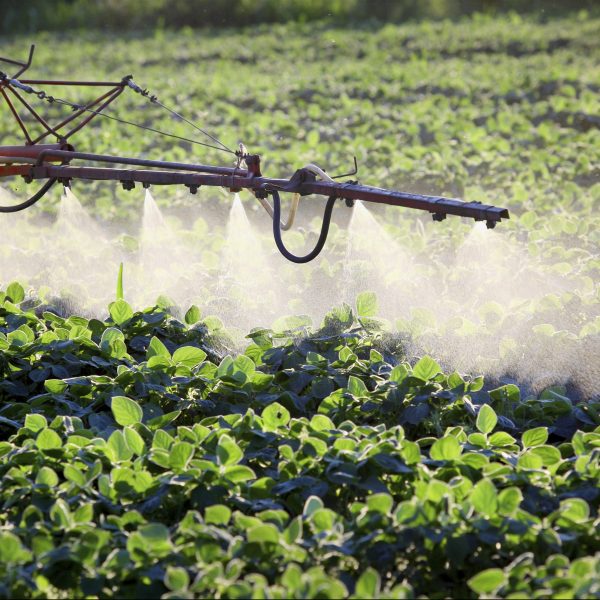Environmental toxins are so commonplace in our world that there is no way to completely avoid them. They come from industrial pollutants, hormones and chemicals added to foods, plastics, pesticides, drugs, and more. Research shows many chemicals can affect your health and reproductive system. It is suspected that nearly 40% of the pesticides used in commercial agriculture are hormone disruptors.
Hormone disruptors from pollutants, estrogen exposure in the womb, chemical residues in food, water and plastics are linked to fertility problems in both sexes. Multiple exposures to toxins can disrupt conception efforts for both partners, potentially affecting ovulation, and lowering sperm count and viability.
How do Environmental Toxins Disrupt Fertility?
Hormone disruptors in toxins can affect your endocrine system. They alter the production and breakdown of your own hormones, and the function of your hormone receptors – disrupting balance at its core. They can even compete for hormone receptor sites in the body and bind to them in place of natural hormones, causing fluctuations in your hormonal levels that can impact reproductive health.
The Chemical Link to Male Fertility Problems
A healthy human male produces about 1500 sperm with every heartbeat. However, studies show sperm counts have dropped on average by more than half over the last 50 years. Sperm are very rich in lipids, sensitive to free radical damage and pollutants. In one study, high free radical levels in the male reproductive tract was linked to infertility in 40% of men. In another study, a significant decline of sperm quality was seen in men with high exposure to three pesticides: alachlor, diazinon and atrazine, all found in water supplies.
Long term exposure to solvents like paint, printing presses, and dry cleaning chemicals is also linked to male fertility problems. Over 1,000 workplace chemicals have been linked to reproductive problems. Hormone disruptors from pesticides can lower sperm count, affect sperm viability and reduce the amount of seminal fluid produced by men. The highest risk jobs studied so far are: livestock and dairy farmers, fruit and flower growers, and gardeners. Men who work in plastic production, welding or who work with lead or other heavy metals face reproductive hazards, too.
Are you at risk? No one is immune to all environmental chemicals, but you may be especially exposed if:
- You work in a profession where there is exposure to pesticides, solvents, metals or plastics.
- You live in a high agricultural area; you eat a high fat diet (fatty areas of your body store pesticides and other agricultural chemicals).
- You eat hormone-injected foods (commercial meats and dairy) regularly.
- You’re on a lot of prescription drugs, especially hormone replacement drugs or birth control pills.
5 Ways to Reduce your Toxin Exposure
1. Cut back on fat and choose organic foods when possible. An organic foods diet can help protect a fetus from the chemicals present in the environment.
2. Eat seaweeds like kelp, nori and dulse. Algin, a gel like substance in seaweeds, binds to chemicals and metals so they can be eliminated safely from the body.
3. Eat cruciferous vegetables, as they especially improve estrogen metabolism for women. Think broccoli, kale, Brussels sprouts.
4. Avoid hormone-injected commercial meats, like beef. Choose hormone-free dairy products, too. Avoid all hormone-containing drugs if possible.
5. Consider an herbal cleansing formula for optimum reproductive health. Toxin Detox caps safeguard your body and health. This formula contains antioxidant rich herbs in the vitamin C blend and green tea extract for reproductive health for men and women. Seaweed, in the blend, can bind to toxins and help eliminate them. This formula addresses everyday detoxification needs for men and women exposed to contaminants that can impact reproductive health.
- Dallinga JW, Moonen EJ, Dumoulin JC, Evers JL, Geraedts JP, Kleinjans JC. Decreased human semen quality and organochlorine compounds in the blood. Human Reprod 2002; 17:1973-1979
- “Toxic Landfills May Cause Birth Defects,” WebMD, Jan 24, 2002
- Page, Linda, Ph.D., Traditional Naturopath. Healthy Healing 14th Edition: A Guide to Self-Healing For Everyone. Healthy Healing LLC 2011





